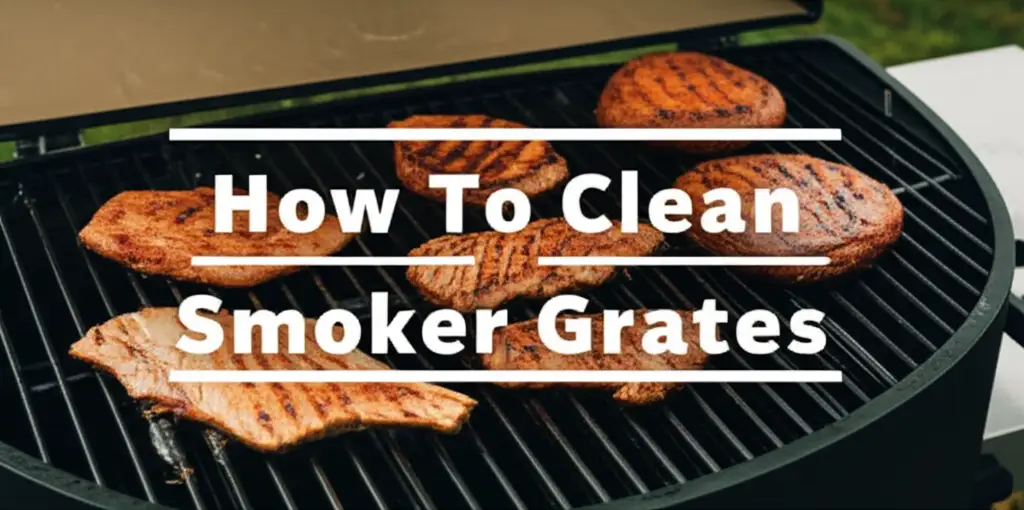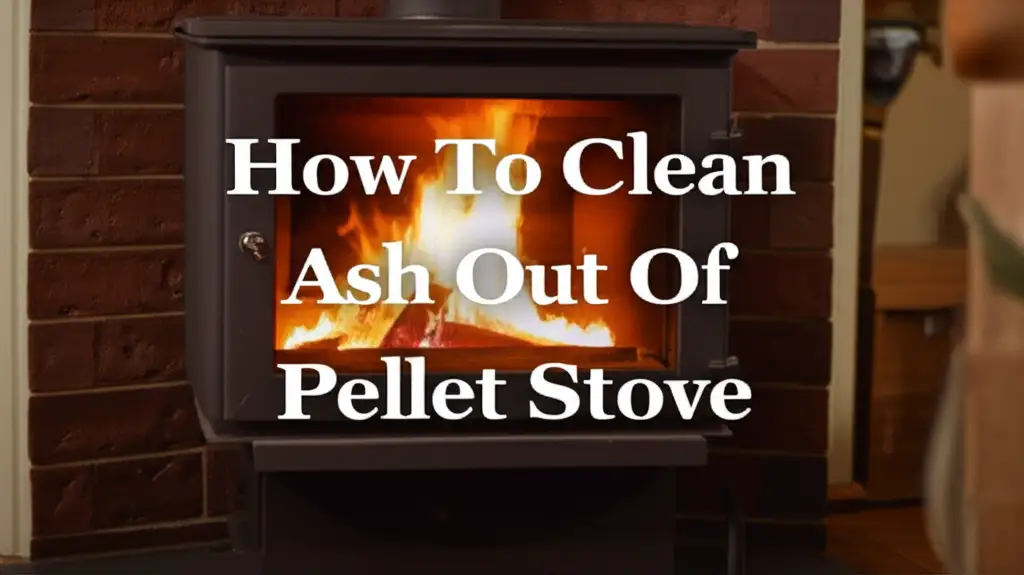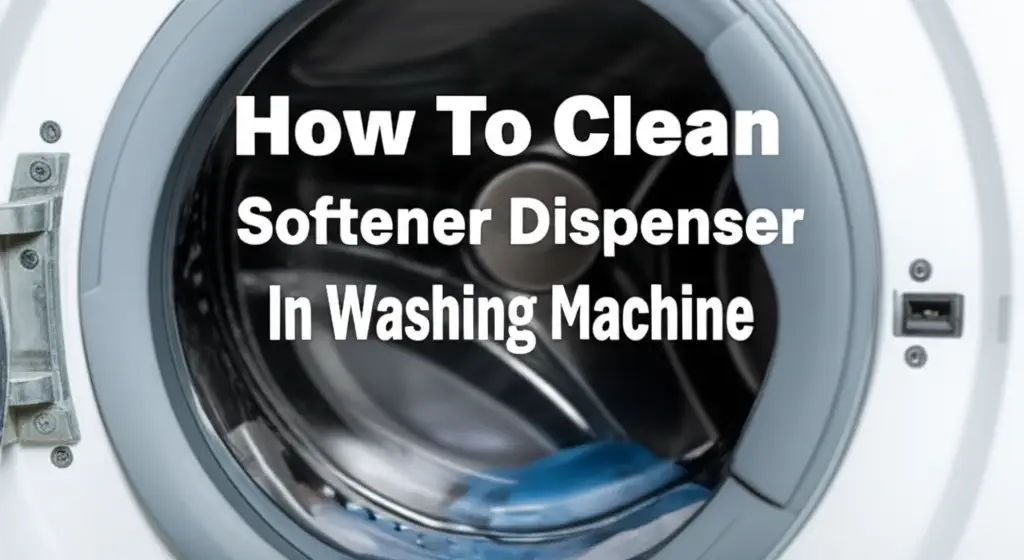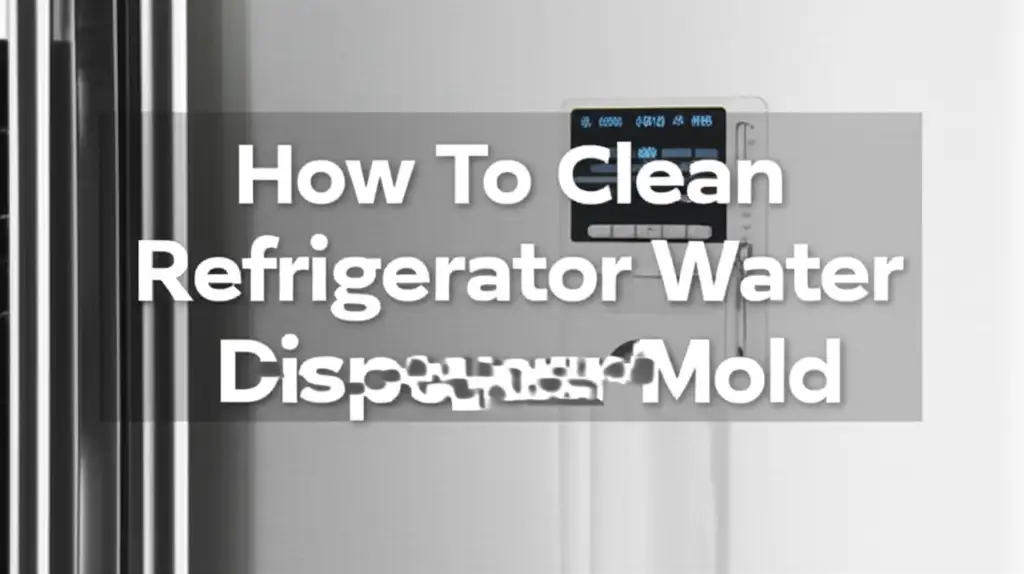· Appliance Cleaning · 17 min read
How To Clean Smoker Grates

How To Clean Smoker Grates Effectively
There is nothing quite like the flavor of perfectly smoked meat. But have you ever noticed a strange, off-putting taste in your latest brisket or ribs? Often, the culprit hides in plain sight: dirty smoker grates. Accumulated grease and charred food bits do more than just look bad; they affect your food’s taste and can shorten your smoker’s life.
Maintaining clean smoker grates is an essential part of the smoking process. It ensures every meal tastes its best. It also helps your equipment last for many years. This guide will show you how to clean smoker grates properly. We will cover different materials and cleaning methods. You will learn about the right tools and supplies. We will also discuss common mistakes to avoid. By the end, you will know exactly how to keep your smoker grates spotless and ready for your next smoke.
Takeaway
Keeping your smoker grates clean means better-tasting food and a longer-lasting smoker. Here are the key steps:
- Clean grates after each use to prevent buildup.
- Match your cleaning method to the grate material: cast iron, porcelain, or stainless steel.
- Use the right tools and cleaning solutions.
- Always dry grates thoroughly and season cast iron ones.
- Avoid harsh chemicals or abrasive tools that can damage your grates.
A Quick Answer on Cleaning Smoker Grates
You clean smoker grates by removing them and scrubbing away grease and food residue. Use a stiff wire brush for stainless steel or cast iron. Use a softer brush for porcelain. Warm soapy water or a specialized degreaser helps dissolve tough grime. Always dry the grates completely and re-season cast iron after cleaning.
Why Cleaning Smoker Grates Matters for Flavor and Longevity
I always say that a clean smoker is a happy smoker. This applies especially to the grates. These are the surfaces where your food sits. Over time, grease, fat, and food particles build up. This creates a thick layer of carbonized grime. This grime impacts everything, from your food’s flavor to the lifespan of your smoker.
The Impact on Your Food's Flavor
Imagine a piece of art carefully painted, only to be covered in dust. Dirty smoker grates are similar. They impart unwanted flavors to your food. Old, carbonized grease turns rancid. This can give your delicious ribs or chicken a bitter or greasy taste. You want your food to absorb the rich, smoky flavors from your wood chips. You do not want it absorbing stale, burnt residue. Clean grates allow pure smoke to flavor your food. They ensure every bite tastes exactly as it should. This makes a big difference in the quality of your outdoor cooking.
Extending the Life of Your Smoker
Beyond taste, cleaning protects your investment. Food particles and grease can become corrosive. They trap moisture against the metal. This leads to rust and degradation over time. Regular cleaning removes these harmful elements. It stops rust from forming. It also preserves the integrity of the grate material. This means your smoker grates will last much longer. Proper cleaning helps avoid expensive replacements. It ensures your smoker is always ready for action. Think of it as preventative maintenance for your favorite outdoor appliance.
Essential Tools and Supplies for Cleaning Smoker Grates
Before you start cleaning, gather all your supplies. Having everything ready makes the job easier and more efficient. The right tools protect your grates from damage. They also protect your hands and eyes during the process. I always prepare my cleaning station beforehand.
Must-Have Cleaning Equipment
First, you need good brushes. For stainless steel or cast iron grates, a sturdy wire brush is ideal. It can scrape off tough, baked-on residue. Make sure the bristles are strong. For porcelain-coated grates, choose a nylon brush or a soft brass brush. A stiff wire brush can scratch and damage the porcelain. A heavy-duty scraper can help with large, stubborn chunks. I also use a bucket for soaking grates. This allows the cleaning solution to work its magic.
Safe Cleaning Solutions
Next, consider your cleaning agents. Warm, soapy water is often enough for light cleaning. Use a good quality dish soap that cuts through grease. For heavier buildup, a dedicated grill or oven cleaner works well. Read the labels carefully. Some cleaners are very strong. Always test them on a small area first. Natural alternatives like vinegar and baking soda are also effective. They are safer for you and the environment. Remember to wear heavy-duty gloves to protect your hands from harsh chemicals and grime. Safety glasses are also a good idea. They protect your eyes from splashes and flying debris. You will appreciate having these items ready.
Step-by-Step Guide: Cleaning Smoker Grates After Each Use
Cleaning your smoker grates after every use is the best way to prevent tough buildup. This simple routine saves you from long, difficult deep cleaning later. It takes only a few minutes. I always do this while the smoker is still warm. It makes a big difference.
Initial Scrape While Warm
The easiest time to clean your smoker grates is right after you finish cooking. The grates are still warm. This warmth makes grease and food particles softer. Take your chosen grill brush or scraper. Firmly brush or scrape off any leftover food or charred bits. You will see much of the gunk come right off. Work quickly but carefully. Be sure to avoid touching the hot grates with your bare hands. This quick scrape prevents debris from hardening. Hardened debris becomes much harder to remove later.
Simple Wipe-Down
After scraping, let the grates cool down a bit more. They should still be warm, but safe to handle. Now, use a damp cloth or paper towels. Wipe down the grates to remove any remaining loose particles and grease. For an extra clean, you can dampen the cloth with a little warm, soapy water. This removes surface grease effectively. If your grates are cast iron, avoid using too much water. You do not want them to rust. For all grate types, make sure to dry them thoroughly after wiping. This simple step keeps your grates clean and ready for the next smoking session. This routine keeps them from getting really dirty.
Deep Cleaning Smoker Grates: Methods for Different Materials
Sometimes, a quick scrape is not enough. You need to deep clean your smoker grates. The best deep cleaning method depends on the material of your grates. Different materials require different approaches. Using the wrong method can damage your grates. This section will guide you through cleaning cast iron, porcelain, and stainless steel grates. I have tried many methods over the years. Knowing your grate material is the first step to success.
Cleaning Cast Iron Smoker Grates
Cast iron grates are known for their durability and excellent heat retention. They also require special care. They rust easily if not properly maintained. First, let the grates cool completely. Scrape off as much loose debris as possible with a stiff wire brush. For baked-on grime, soak the grates in warm, soapy water for 15-30 minutes. You can use a mild dish soap. Do not soak cast iron for too long, as it can promote rust.
After soaking, scrub them with your wire brush. Rinse them thoroughly with clean water. The most important step for cast iron is drying and seasoning. Dry the grates immediately and completely with a towel. Then, apply a thin layer of cooking oil. Use a paper towel to rub it evenly over all surfaces. Place them back in the smoker and heat the smoker to about 350-400°F (175-200°C) for an hour. This re-seasons the grates. This step protects them from rust and creates a non-stick surface. Properly seasoned cast iron grates enhance the flavor of your food. For more detailed tips on cast iron, check out our guide on how to clean cast iron grill grates.
Cleaning Porcelain-Coated Smoker Grates
Porcelain-coated grates are easier to clean than cast iron. They are also more delicate. The porcelain coating can chip or crack if you use abrasive tools. Always let these grates cool down completely before cleaning. Use a nylon grill brush or a soft brass brush. A stiff wire brush will scratch the porcelain. Scrape away any food residue gently.
For stubborn spots, soak the grates in a mixture of warm water and dish soap. You can also use a mixture of vinegar and water. Let them soak for at least 30 minutes, or even overnight for very tough buildup. After soaking, gently scrub with your nylon brush or a sponge. Rinse the grates thoroughly with clean water. Dry them completely with a soft cloth. Do not use harsh chemical cleaners or abrasive pads on porcelain. This can damage the coating. A damaged porcelain coating can lead to rust on the metal underneath. Learn more about protecting this delicate surface in our article about how to clean porcelain grill grates.
Cleaning Stainless Steel Smoker Grates
Stainless steel grates are durable and generally easy to clean. They resist rust better than cast iron. Allow them to cool completely before cleaning. Use a stiff wire brush or a specialized stainless steel grill brush. Scrub off all food and grease. For tough, baked-on grime, you can use a degreaser. Apply the degreaser to the grates. Let it sit for the recommended time on the product label.
After applying the degreaser, scrub the grates thoroughly. Rinse them well with clean water to remove all cleaning solution residue. Make sure no chemical smell remains. Dry the grates completely to prevent water spots and rust. You can use a towel or let them air dry in the sun. Stainless steel is forgiving, but proper drying is still key. Some people like to finish with a stainless steel cleaner. This can add shine and a protective layer. The methods for cleaning stainless steel smoker grates are similar to those for regular gas grill grates. You can find more helpful advice in our article on how to clean gas grill grates.
Advanced Cleaning Techniques and Stubborn Buildup
Sometimes, your smoker grates get really dirty. Standard cleaning might not be enough for tough, baked-on grease. When this happens, you need more powerful methods. I have faced these challenges many times. These advanced techniques can bring even the grimiest grates back to life. Always remember to use protective gear when using stronger cleaners.
Using Oven Cleaner Safely
Oven cleaner is very effective for dissolving stubborn grease and carbon. It contains strong chemicals. Always use it outdoors or in a very well-ventilated area. Wear heavy-duty gloves and eye protection. Remove the grates from your smoker. Lay them on newspaper or a tarp to protect the ground. Spray the oven cleaner generously on both sides of the grates. Let it sit for the time recommended on the product label. This is usually 15-30 minutes, or even a few hours for very heavy buildup.
After the waiting period, scrub the grates vigorously with a stiff brush. You will see the grime dissolve and lift away. Rinse the grates thoroughly with a strong stream of water. Ensure all cleaner residue is gone. Any leftover cleaner can affect your food’s taste. Dry the grates completely. Oven cleaner works well on stainless steel and cast iron. Be cautious with porcelain. Test a small, hidden area first. The harsh chemicals can sometimes damage the porcelain coating.
Natural Solutions: Vinegar and Baking Soda
If you prefer natural cleaning methods, vinegar and baking soda are excellent. They are non-toxic and surprisingly powerful. First, create a paste with baking soda and a little water. Spread this paste generously over the dirty grates. Let it sit for at least 30 minutes, or longer for tough spots. The baking soda helps to lift and soften the grime.
Next, spray white vinegar directly onto the baking soda paste. You will see it fizz and bubble. This reaction helps break down the grease even further. Let it sit for another 15-20 minutes. Then, scrub the grates with a brush or a sponge. Rinse them thoroughly with water. This method is safe for all grate materials. It leaves no harsh chemical residue. It might require more scrubbing than oven cleaner. However, it is a great eco-friendly option.
The Aluminum Foil Method
This is a simple, effective trick for stainless steel or cast iron grates. It uses something you likely have in your kitchen. Crumple a large sheet of aluminum foil into a ball. Use this foil ball as a scrubber. Grip it firmly with tongs or gloves. Rub the foil ball vigorously over the dirty grates. The abrasive surface of the foil scrapes off baked-on food and grease. It is surprisingly effective.
This method works best when the grates are slightly warm. The warmth helps loosen the grime. After scrubbing with the foil, brush away any loose debris. Then, wipe the grates down with a damp cloth. This method is quick and requires no harsh chemicals. It is a good alternative when you do not have a specialized grill brush. For more ways to use this handy kitchen item for cleaning, refer to our guide on how to clean grill grates with aluminum foil.
Maintaining Smoker Grates for Optimal Performance
Cleaning your smoker grates is important. Maintaining them properly after cleaning is just as crucial. Good maintenance keeps your grates in top condition. It prevents future problems. This means less cleaning work for you in the long run. I always follow these steps to keep my smoker grates ready for the next cookout.
Proper Seasoning of Grates
Seasoning is critical for cast iron grates. It protects them from rust. It also creates a non-stick surface. After you clean cast iron grates, they lose some of their seasoning. To re-season, apply a very thin layer of high smoke point oil. Vegetable oil, flaxseed oil, or grapeseed oil work well. Rub the oil evenly over all surfaces of the grates with a paper towel. Then, place the grates back in your smoker. Heat the smoker to a high temperature, around 350-400°F (175-200°C), for about an hour. This process bakes the oil onto the metal. It forms a protective, non-stick layer. Repeat this after every deep clean or if you notice your cast iron grates losing their dark, even coating.
Storing Your Grates Correctly
How you store your grates impacts their longevity. Always store grates in a dry place. Moisture is the enemy of metal, especially cast iron. If you remove your grates for storage, make sure they are completely dry first. You can use a towel. For cast iron, a light coat of cooking oil after drying adds extra protection. Store them in a clean, dry area. Some people store them inside the smoker itself, covered. Others keep them in a garage or shed. Ensure they are not exposed to humidity. Proper storage prevents rust. It ensures your grates are ready and clean for your next smoking session. This simple step protects your investment from damage.
Common Mistakes to Avoid When Cleaning Smoker Grates
Cleaning smoker grates seems straightforward. However, some common mistakes can damage your grates or make the job harder. I have seen many people make these errors. Avoiding them ensures your grates last longer and remain effective. Knowing what not to do is as important as knowing what to do.
Using the Wrong Tools
This is one of the most frequent mistakes. Using an abrasive wire brush on porcelain-coated grates will scratch the coating. This exposes the metal underneath. This leads to rust. Always use a nylon brush or soft brass brush for porcelain. For cast iron, a stiff wire brush is fine. But use it carefully. For stainless steel, a wire brush or specialized stainless steel brush is good. Using a tool too harsh for the material causes irreversible damage. This is a common issue with many types of grates, including oven grates. You can learn more about protecting those surfaces in our guide on how to clean gas oven grates.
Skipping Drying and Seasoning
Moisture is the primary cause of rust on metal grates. Skipping the drying step after cleaning is a big mistake. Always dry your grates thoroughly with a towel or by air drying in the sun. For cast iron grates, not re-seasoning them after cleaning is another common error. Cleaning removes the protective oil layer. Without re-seasoning, cast iron grates are very vulnerable to rust. This can quickly turn them into a rusty mess. Addressing rusty grates means extra work. To avoid this, always dry and season cast iron grates promptly. If you encounter rust, our article on how to clean rusty grill grates offers solutions.
Ignoring Safety Precautions
Cleaning products, especially strong degreasers or oven cleaners, contain harsh chemicals. Ignoring safety warnings is dangerous. Always wear protective gloves to shield your hands from chemical burns and grime. Eye protection is also essential to prevent splashes from getting into your eyes. Work in a well-ventilated area, preferably outdoors, when using strong cleaners. Inhaling fumes can be harmful. Safety should always be your top priority during any cleaning task.
Not Cleaning Regularly
Putting off cleaning is another common mistake. Baked-on grease and carbon become incredibly difficult to remove over time. This makes deep cleaning a much longer and more strenuous task. Regular, light cleaning after each use prevents this buildup. It keeps your grates much easier to maintain. Think of it as a small effort often, rather than a huge effort rarely. This small habit saves you a lot of time and frustration in the long run.
FAQ Section
How often should I clean my smoker grates?
You should lightly clean your smoker grates after every use. This means a quick scrape and wipe-down while they are still warm. Perform a deep clean every few months, or before and after prolonged storage. The frequency depends on how often you smoke and what type of food you cook. Fatty meats create more buildup.
Can I put smoker grates in the dishwasher?
It depends on the material. You should not put cast iron grates in the dishwasher. The harsh detergents and prolonged moisture will strip the seasoning and cause rust. Porcelain and stainless steel grates might be dishwasher safe, but check your smoker’s manual. Handwashing is generally safer and more effective for deep cleaning.
What is the best way to remove baked-on grease from smoker grates?
For baked-on grease, try a strong degreaser or oven cleaner. Apply it, let it sit, then scrub thoroughly. Natural alternatives like a baking soda and vinegar paste are also effective. For stainless steel or cast iron, the aluminum foil method can scrape off tough residue. Always rinse well.
Should I season my smoker grates after cleaning?
Yes, especially cast iron grates. Cleaning removes the protective seasoning layer. After cleaning and drying cast iron grates, apply a thin layer of cooking oil. Heat the grates in your smoker to bake on the oil. This step prevents rust and maintains a non-stick surface. Stainless steel and porcelain grates do not require seasoning.
Is it safe to use a wire brush on all types of smoker grates?
No, it is not safe for all types. You can use a stiff wire brush on cast iron and stainless steel grates. For porcelain-coated grates, a wire brush can scratch and chip the delicate coating. Use a nylon or soft brass brush on porcelain grates to avoid damage. Always use the correct tool for your grate material.
Can I use a pressure washer on my smoker grates?
You can use a pressure washer on stainless steel and cast iron grates, but with caution. It is effective for blasting off loose grime. Keep the nozzle a safe distance to avoid damaging the grates. Never use a pressure washer on porcelain grates, as the high pressure can chip the coating. Always dry grates immediately after pressure washing.
Conclusion
Keeping your smoker grates clean is more than just a chore. It is an investment in great-tasting food and a long-lasting smoker. Dirty grates can ruin the flavor of your favorite smoked dishes. They also lead to rust and damage over time. By following the simple steps we discussed, you can ensure your smoker grates remain in top condition.
Remember to clean your smoker grates after every use to prevent buildup. Choose the right cleaning method for your grate material: cast iron, porcelain, or stainless steel. Always have the correct tools and cleaning supplies ready. Do not forget to dry and re-season cast iron grates promptly after cleaning. Avoiding common mistakes like using the wrong tools or skipping regular maintenance will save you time and effort. With clean grates, you are ready to create delicious, smoky masterpieces every time. Take pride in your smoker’s cleanliness. Enjoy the superior flavor it brings to your table. Your taste buds and your smoker will thank you.
- smoker grates cleaning
- bbq cleaning
- grill maintenance
- outdoor cooking
- deep clean




